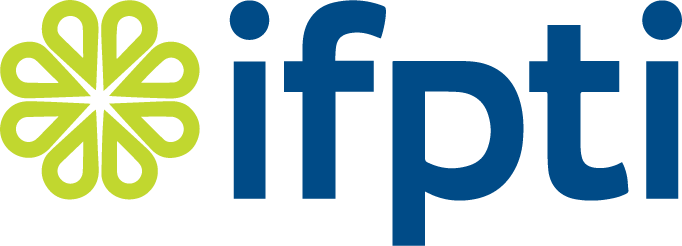IFSS Human and Animal Food Laboratory
Mid (Program Specific)
Chemistry
Content Area: Advanced Liquid Chromatography
Description: The advanced use and application of liquid chromatography for the determination of analytes.
Topic Areas:
-
Description: Selecting appropriate materials and techniques based on analyte and matrix.
Terminal Competency:
Design a method based on the analyte/matrix.
Enabling Competencies:
1. Choose analytical chromatographic techniques.
2. Identify materials needed for the selected LC mode.
3. Select reference standards for the analysis.
4. Modify chromatographic conditions to achieve optimal separation.
5. Use established protocols to validate LC methods.
6. Identify emerging approaches to enhance sustainability.
To see a set of behavioral anchors, which provide further detail about the enabling competencies and can be used for assessment against the enabling competencies, contact IFPTI.
-
Description: Methods and techniques used to achieve extraction of analytes.
Terminal Competency:
Prepare a sample.
Enabling Competencies:
1. Consider sample composition.
2. Describe the sample preparation approach.
To see a set of behavioral anchors, which provide further detail about the enabling competencies and can be used for assessment against the enabling competencies, contact IFPTI.
-
Description: Knowledge of diverse techniques to retain compounds in LC.
Terminal Competency:
Describe techniques used to retain compounds in LC.
Enabling Competencies:
1. Differentiate between various retention modes.
2. Select a retention mode for a particular analyte.
3. Tailor the separation to the method goals.
4. Recognize software-based approaches to optimize separations.
To see a set of behavioral anchors, which provide further detail about the enabling competencies and can be used for assessment against the enabling competencies, contact IFPTI.
-
Description: Knowledge of different approaches to optimize analyte flow path.
Terminal Competency:
Discuss different approaches to optimize analyte flow path.
Enabling Competencies:
1. Recognize the range of solvent delivery system designs.
2. Describe instrument components.
3. Minimize extra column dispersion.
4. Assess dwell volume.
To see a set of behavioral anchors, which provide further detail about the enabling competencies and can be used for assessment against the enabling competencies, contact IFPTI.
-
Description: Considerations involved in choosing a stationary phase for efficient separation.
Terminal Competency:
Discuss considerations involved in choosing a stationary phase.
Enabling Competencies:
1. Discern the analytical goals of the method.
2. Identify retention mode for the analysis.
3. Choose optimal commercial column.
4. Calculate column volume parameters (e.g., void/column volume).
5. Recognize optimal column handling.
6. Monitor column performance parameters.
To see a set of behavioral anchors, which provide further detail about the enabling competencies and can be used for assessment against the enabling competencies, contact IFPTI.
-
Description: Considerations involved in choosing a mobile phase for efficient separation and detection.
Terminal Competency:
Discuss considerations involved in choosing a mobile phase.
Enabling Competencies:
1. Discern the analytical goals of the method.
2. Select mobile phase components compatible for the retention mode.
3. Determine mobile phase delivery for method performance.
To see a set of behavioral anchors, which provide further detail about the enabling competencies and can be used for assessment against the enabling competencies, contact IFPTI.
-
Description: Detection systems used for liquid chromatography.
Terminal Competency:
Discuss the use of detection systems for liquid chromatography.
Enabling Competencies:
1. Describe detector options for LC.
2. Select detector for the analysis.
3. Operate different detectors for LC.
To see a set of behavioral anchors, which provide further detail about the enabling competencies and can be used for assessment against the enabling competencies, contact IFPTI.
-
Description: Translating chromatographic data into useful information.
Terminal Competency:
Perform data analysis activities.
Enabling Competencies:
1. Interpret chromatographic data.
2. Determine integration parameters to improve quantification.
3. Apply statistical skills to data sets.
4. Evaluate QC.
5. Create graphical representations.
6. Utilize untargeted screening approaches for analyte identification.
To see a set of behavioral anchors, which provide further detail about the enabling competencies and can be used for assessment against the enabling competencies, contact IFPTI.
-
Description: Knowledge and skills required to assure optimal day to day operation of LCs.
Terminal Competency:
Support the optimization of day-to-day operations.
Enabling Competencies:
1. Operate instrumental software packages.
2. Maintain operational readiness.
3. Recognize instrument performance issues.
4. Demonstrate troubleshooting.
5. Implement method validation plan.
6. Transfer LC knowledge.
To see a set of behavioral anchors, which provide further detail about the enabling competencies and can be used for assessment against the enabling competencies, contact IFPTI.
-
Description: Emerging commercial technology in the LC field.
Terminal Competency:
Apply advanced LC techniques.
Enabling Competencies:
1. Recognize the need for multi-dimensional separations (e.g., LCxLC, 2DLC).
2. Recognize the role of un-targeted screening approaches using mass spectroscopy for analyte identification.
3. Recognize the role of hyphenation techniques (e.g., MS, HRMS, FTIR, LCxGC).
4. Identify additional LC-related technologies.
To see a set of behavioral anchors, which provide further detail about the enabling competencies and can be used for assessment against the enabling competencies,contact IFPTI.
Learning Resources:
Coming Soon
Assessments:
Coming soon
